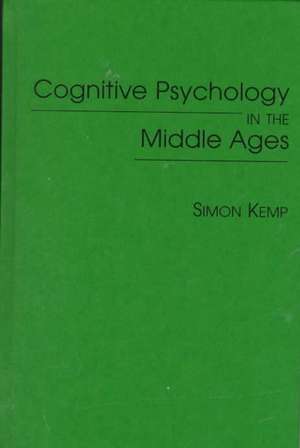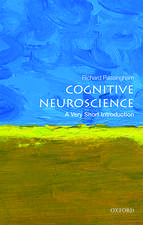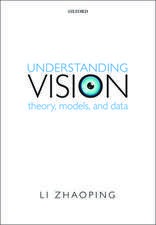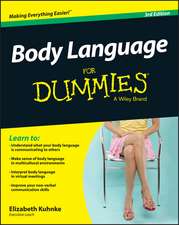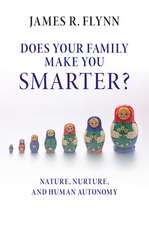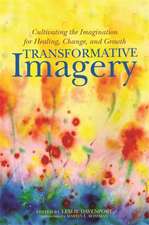Cognitive Psychology in the Middle Ages: International Contributions in Psychology
Autor Simon Kempen Limba Engleză Hardback – 29 noi 1996 – vârsta până la 17 ani
Din seria International Contributions in Psychology
- 28%
 Preț: 497.64 lei
Preț: 497.64 lei - 27%
 Preț: 441.29 lei
Preț: 441.29 lei - 28%
 Preț: 460.60 lei
Preț: 460.60 lei - 28%
 Preț: 375.31 lei
Preț: 375.31 lei - 38%
 Preț: 346.50 lei
Preț: 346.50 lei - 28%
 Preț: 460.51 lei
Preț: 460.51 lei - 24%
 Preț: 364.22 lei
Preț: 364.22 lei - 28%
 Preț: 344.22 lei
Preț: 344.22 lei - 27%
 Preț: 438.93 lei
Preț: 438.93 lei - 27%
 Preț: 438.24 lei
Preț: 438.24 lei - 28%
 Preț: 435.88 lei
Preț: 435.88 lei - 28%
 Preț: 434.61 lei
Preț: 434.61 lei - 24%
 Preț: 459.31 lei
Preț: 459.31 lei - 22%
 Preț: 471.24 lei
Preț: 471.24 lei - 28%
 Preț: 344.22 lei
Preț: 344.22 lei - 27%
 Preț: 345.67 lei
Preț: 345.67 lei - 18%
 Preț: 308.13 lei
Preț: 308.13 lei - 28%
 Preț: 436.15 lei
Preț: 436.15 lei - 30%
 Preț: 512.04 lei
Preț: 512.04 lei - 35%
 Preț: 463.38 lei
Preț: 463.38 lei - 24%
 Preț: 464.13 lei
Preț: 464.13 lei - 27%
 Preț: 438.59 lei
Preț: 438.59 lei - 27%
 Preț: 464.48 lei
Preț: 464.48 lei - 38%
 Preț: 345.15 lei
Preț: 345.15 lei - 27%
 Preț: 438.76 lei
Preț: 438.76 lei - 28%
 Preț: 437.47 lei
Preț: 437.47 lei - 14%
 Preț: 356.95 lei
Preț: 356.95 lei - 38%
 Preț: 437.47 lei
Preț: 437.47 lei - 38%
 Preț: 345.30 lei
Preț: 345.30 lei - 35%
 Preț: 363.73 lei
Preț: 363.73 lei - 27%
 Preț: 438.33 lei
Preț: 438.33 lei - 28%
 Preț: 437.57 lei
Preț: 437.57 lei - 33%
 Preț: 174.88 lei
Preț: 174.88 lei - 27%
 Preț: 364.06 lei
Preț: 364.06 lei - 17%
 Preț: 289.84 lei
Preț: 289.84 lei
Preț: 458.91 lei
Preț vechi: 607.03 lei
-24% Nou
Puncte Express: 688
Preț estimativ în valută:
87.81€ • 91.92$ • 73.09£
87.81€ • 91.92$ • 73.09£
Carte tipărită la comandă
Livrare economică 31 martie-14 aprilie
Preluare comenzi: 021 569.72.76
Specificații
ISBN-13: 9780313300516
ISBN-10: 0313300518
Pagini: 152
Dimensiuni: 156 x 235 x 16 mm
Greutate: 0.35 kg
Ediția:New.
Editura: Bloomsbury Publishing
Colecția Praeger
Seria International Contributions in Psychology
Locul publicării:New York, United States
ISBN-10: 0313300518
Pagini: 152
Dimensiuni: 156 x 235 x 16 mm
Greutate: 0.35 kg
Ediția:New.
Editura: Bloomsbury Publishing
Colecția Praeger
Seria International Contributions in Psychology
Locul publicării:New York, United States
Notă biografică
Simon Kemp received his PhD in psychology from Auckland University. He is currently associate professor of psychology at the University of Canterbury in Christchurch, New Zealand. Dr. Kemp is the author of Medieval Psychology (Greenwood, 1990).
Cuprins
IntroductionThe Early Middle AgesAristotle's Cognitive PsychologyThe Inner SensesCognition in the Rational SoulMedieval ApplicationsMedieval and Modern Theories of CognitionBibliographyIndex
Recenzii
Kemp examines cognitive psychology from roughly the fourth to the 15th century CE. A brief history of the Middle Ages provides useful context to understand the pithier religious and philosophical variables that influenced psychological thinking in general. Much of the book (as does much of medieval scholarship) revolves around Aristotle's cognitive theory . . . and the medieval debate and interpretation that followed. . . . This book will be of particular interest and value to scholars and enthusiasts of the history of psychology, and also to cognitive psychologists looking for a broader historical-centextual background for their work.
[W]ell organized and well conceived.
[W]ell organized and well conceived.
